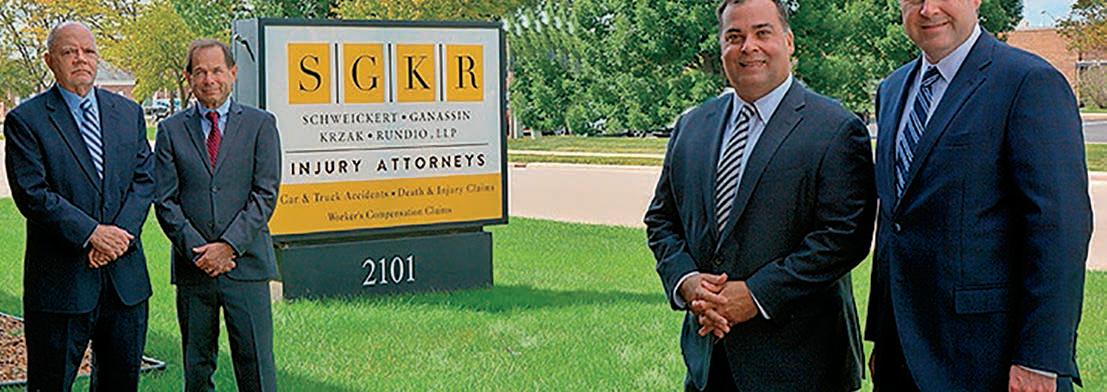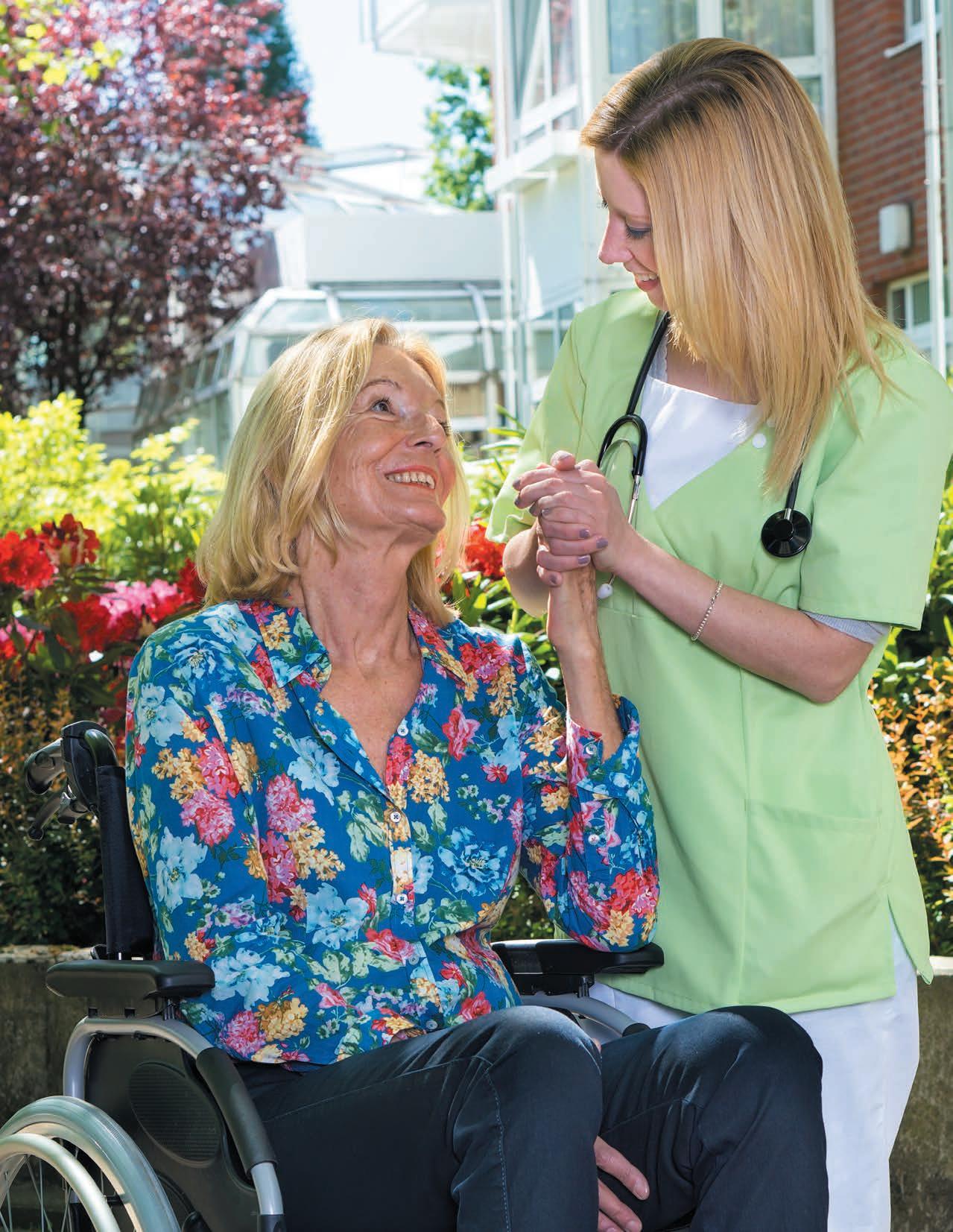

Retirement Assisted Living &
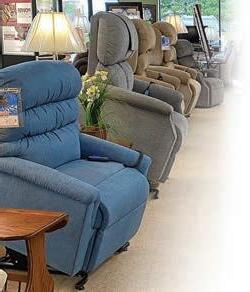
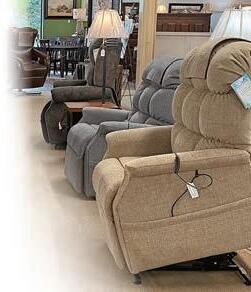







How to protect long-term cognitive health
Cognitive health is not something to take for granted. Although a certain level of memory loss can be expected as people age, when the ability to clearly think, learn and remember is compromised, those changes can affect an individual’s ability to perform daily activities and should serve as a cause for concern.
Brain health should be a priority for everyone. The National Institute on Aging says brain health is an umbrella term that encompasses a host of factors, including:
• cognitive health, which is how well you think, learn and remember
• motor function, or how you make and control movements
• tactile function, which is how you feel sensations; and
• emotional function, or how emotions are interpreted and responded to.
Individuals can safeguard brain health — particularly cognitive health — by taking these steps.
BE MORE HEALTH-CONSCIOUS
Working with doctors, individuals can put their health first. This includes getting routine screenings, managing
chronic health problems, limiting or avoiding alcohol and nicotine products, and getting the recommended amount of sleep each night.
MANAGE HIGH BLOOD PRESSURE
All chronic conditions cause longterm repercussions, but the NIA indicates that observational studies show having high blood pressure in mid-life increases the risk of cognitive decline later in life. Lowering blood pressure lowers the risk for mild cognitive impairment and possibly dementia.
CHALLENGE YOUR BRAIN
Harvard Medical School says nurturing social contacts, engaging in stimulating mental activities like reading and doing puzzles, seeing new places, and learning new things can help keep the brain in top form.
MANAGE STRESS
Stress can take its toll on the body, and there is reason to believe that it may adversely affect cognitive health as well. Make every stride to reduce stress, whether that involves taking vacations,

meditating, laughing with friends and family, or engaging in relaxing activities that relieve stress.
GET ENOUGH VITAMIN D
Vitamin D is linked to a host health benefits, including its potential to promote a healthy brain. Individuals can get more time outdoors to get vitamin D naturally from the sun and eat foods rich in vitamin D. If doctors find that vitamin D levels are exceptionally low, supplementation can help.
PAY ATTENTION TO HEARING LOSS
Certain hearing loss has been linked to cognitive decline, says Healthline. Researchers in Italy concluded that people with central hearing loss had a higher risk of mild cognitive impairment than those with no hearing loss or peripheral hearing loss. Individuals with central hearing loss are urged to speak to their physicians to determine if they can take preventive action to stave off further decline.
Cognitive health should be a priority. Adults can employ various strategies to reduce their risk of cognitive decline as they age. TF232670

Country Comfort Retirement Homes
Country Comfort Retirement Homes (CCRH) recently celebrated its 30 years anniversary at its Henry location. CCRH are private family owned and operated Assisted Living and Alzheimer’s Special Care homes housing 12-16 residents. CCRH provides 24 hour care staff in addition medication administration from a licensed nursing staff. Our homes focus on eliminating the corporate living environment found in larger facilities. CCRH is committed to providing a home like feeling for our residents. We welcome family, friends, pets, and children to routinely

PRINCETON
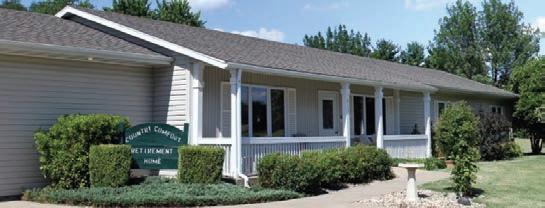
visit and share in joys of our home. You will feel a sense of family as you get to know the staff, management, and residents at CCRH. CCRH residents feel more at home due to the careful thought put into the cozy design of each lo-
cation. All of our homes feature a warm interior with soft colors, fire places, and sun rooms. The most important feature of our CCRH homes is the non-commercial feel of the kitchen which is located in the heart of each home. Each
kitchen has an open design allowing residents and staff to interact throughout the meal process. Watching and/ or participating in meal prep and smelling the aroma of the food as it cooks helps keep our residents engaged in daily life skills that occur in every home, allowing us to enhance the family feeling. This unique design allows for a more natural living setting and for the staff to provide the loving care and support that all seniors so deserve.
You will not only feel at home at CCRH, you will feel like part of the family.
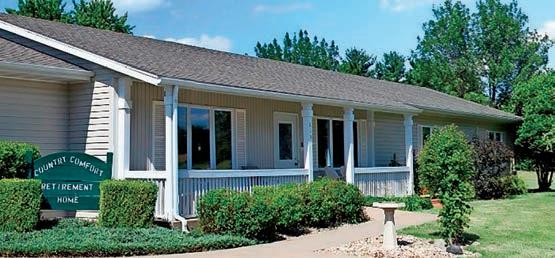

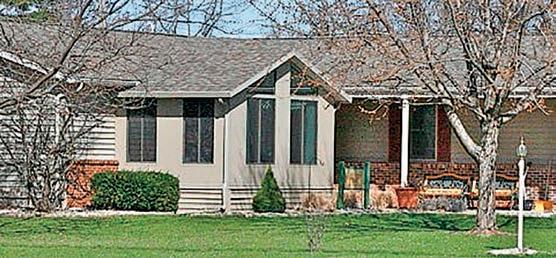


The role of a home health aide
aides.
Home health aides, sometimes called personal care aides, are brought in to assist a person with activities of daily life. An HHA typically helps a person who may need some assistance with tasks they cannot perform due to illness or disability. HHAs may work in a person’s home, in a group home or in another care facility.
AARP says home health aides are considered health care paraprofessionals and must meet established training requirements, which vary by location.
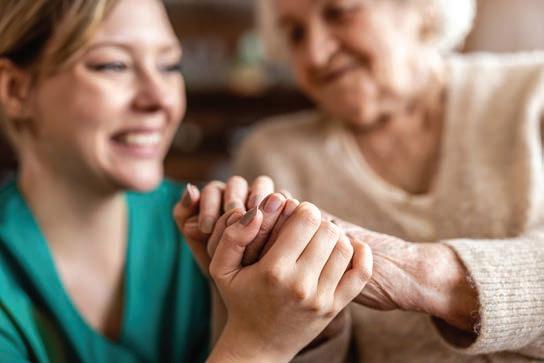
HHAs may perform various duties, including:
• assistance with personal care, such as dressing, toileting, feeding, and moving from bed to chair, etc.
• checking vital signs
• monitoring a client
• light housekeeping

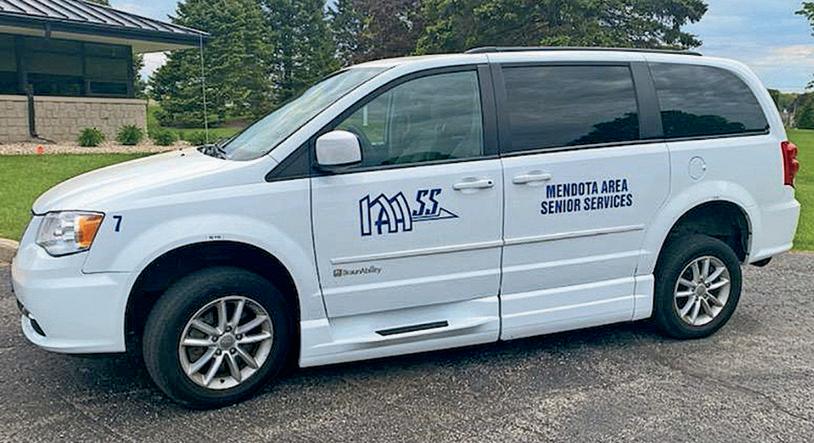



services of HHAs who may work independently or are placed through agencies.
• meal planning and cooking
• picking up prescriptions
• companionship
HHAs typically will not provide skilled nursing care and may not be able to offer recommendations on treatment or medications.
Individuals can find the
Sometimes a doctor or hospital will have connections to HHA services and can make referrals. It can be useful to interview several potential HHAs to find one who will fit with the needs and personality of the person requiring assistance. A good HHA will be compassionate, patient and flexible. As illness or injury also can affect a person’s mood, HHAs must be able to adjust if a client is reluctant to receive help or is depressed or anxious from his or her limitations.
Home health aides serve vital roles in the health care community by providing care and companionship to those who can no longer live independently.
TF245909

plan in place that helps
enjoy your life to the fullest.
offer top-notch service and advice you need to build a plan that fits your unique goals and objectives. Trust. Integrity.
‘Simply the Finest’ at Liberty Village
Liberty Village of Peru is a premier retirement community campus offering every level of care needed through the senior years. At Liberty Village, we take great care to balance the independence our senior’s desire with the support they need. Liberty Village offers “Simply the Finest” in retirement lifestyles. Our community includes elegant and affordable Villa homes, Liberty Estates independent living retirement apartments, Hawthorne Inn Assisted Living, Manor Court skilled nursing care, Bounce Back rehabilitation and Memory
Lane Fitness for the Mind our Alzheimer’s/dementia neighborhood.
Liberty Village of Peru is proud to have been a part of the Illinois Valley for almost 25 years. We remain under the same local ownership and continue to support our staff in providing “Simply the Finest” in retirement living. Located at the corner of 31st Street and Becker Drive in Peru, stop in for a campus tour. Call us at (815) 224-2200 or visit us online at www.libertyvillageofperu.com or follow us on our Facebook page, Liberty Village of Peru.









How families can share caregiving responsibilities
Family caregivers are unsung heroes. Such individuals typically provide vital services to their loved ones who cannot fully care for themselves, and they often do so without compensation.
Data from the U.S. Bureau of Labor Statistics indicates the prevalence of family caregivers across the country. According to the BLS, 14 percent of the population, which equates to roughly 37 million people, provide unpaid eldercare across the nation. Unpaid caregivers also provide vital services in Canada, where the Canadian Institute for Health Information reports such individuals provide an average of 17 hours of unpaid care each week (26 hours for those who care for seniors with dementia). Caregiving for a family member can take a toll that affects caregivers’ physical and mental health. According to the Centers for Disease Control and Prevention, caregivers are at increased risk for developing multiple chronic diseases since many neglect their own health needs while caring for others. In addition, roughly 15 percent of caregivers who participated in a CDC survey reported experiencing 14 or more mentally unhealthy days in the past month.
The physical and mental toll of caregiving underscores how important it can be for families to find ways to share caregiving duties. Though each situation is unique, the National Institute on Aging offers the following advice to families as they seek to share the responsibility of caring for a loved one in need.
• Identify the care required. The NIA recommends families discuss caregiving needs as early as possible and ideally before an emergency situation arises. If possible,

the person in need can participate in this conversation and help to calmly discuss which services are wanted and needed. If a loved one is diagnosed with a condition in its early stages, such as dementia, families can then work together to identify the level of care required in the immediate future and potentially down the road should the condition worsen.
• Choose a primary caregiver. The primary caregiver will be the individual who accepts the bulk of the daily responsibilities of caregiving. Identifying this person early, ideally before a primary caregiver is even needed, can limit confusion should the day come when the individual needs daily care.
• Determine each caregiver’s contribution. The caregiving team can discuss each person’s skills and how they can be used to take care of the individual in need. This can be particularly useful when assigning specific tasks. For example, a caregiver who works in the medical
field may be most qualified to speak to medical staff about their loved one’s condition, while another who works in the financial sector may be tasked with managing a loved one’s bank accounts and ensuring bills are paid on time.
• Recognize everyone has limits. A caregiving team is just that: a team. As noted, caregiving can take both a physical and emotional toll, so it’s important that everyone, and particularly the individual chosen as the primary caregiver, receive routine breaks to ensure everyone can take care of themselves. It’s important that a caregiving team maintain a degree of flexibility to account for the physical and mental challenges caregivers may encounter as they tend to a loved one in need.
Sharing the responsibility of caregiving can ensure caregivers and their loved ones in need are not overwhelmed by the challenges they might confront each day. More information about caregiving can be found at nia.nih.gov. TF245912
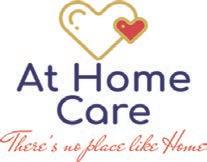
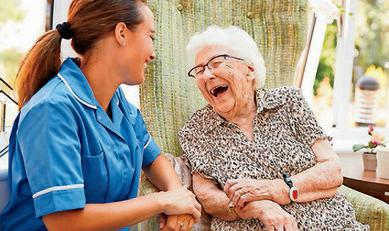









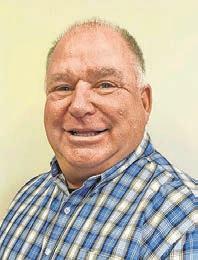


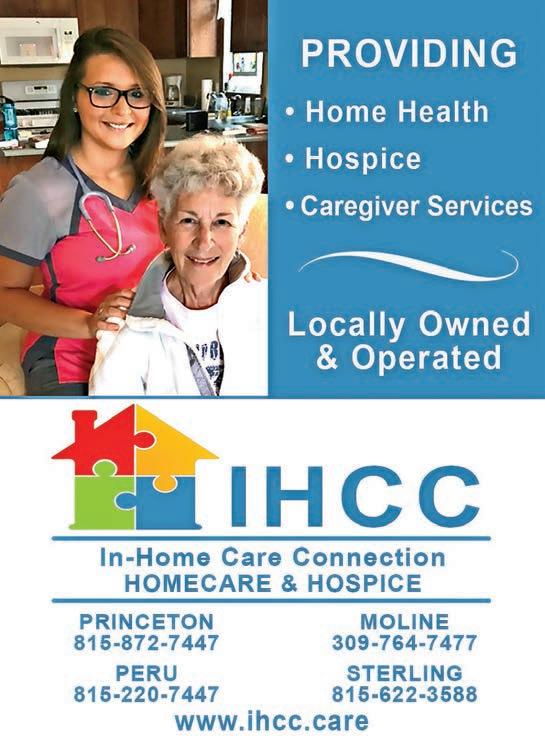
How to get ready for in-home care services
Ensuring that aging loved ones can be as independent as possible while also safe and secure may require the services of a caregiver.
According to the Family Caregiver Alliance, on average, caregivers spend 13 days each month on tasks like shopping, food preparation, housekeeping, laundry, transportation, and administering medication. Many caregivers provide help with activities of daily living, whether they are informal caregivers (unpaid family) or formal caregivers (paid caregivers). Skilled nursing homes or assisted living facilities are options, and many families choose to rely on in-home care providers a few days a week or even for 24-hour-per-day care. Here’s how to make the transition go more smoothly and prepare a home for the caregiver’s arrival.
• Identify the main care space(s). Receiving care at home may necessitate mov -
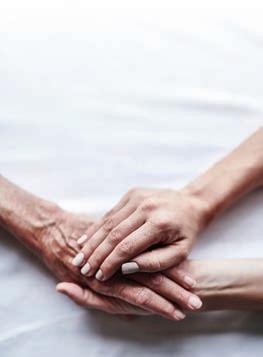
ing the person to a different room or rooms. Ideally that space should be on the ground floor, easily accessible and close to a bathroom. If an in-home caregiver will be a live-in as well, he or she will need a room close to the individual’s room.
• Gather important information that will be needed. Companions for Seniors suggests collecting important supplies, paperwork and
information, such as contacts for doctors and other important people, and making them easily accessible. A caregiver may need access to healthcare directives and maybe even bills or other financial documents if the person will be helping with tasks of that sort.
• Label and organize the home. Consider labeling cupboards, drawers and storage containers so that caregivers can find things more easily. Also, this is a good time to clear out clutter and organize rooms even further.
• Stock the home. Purchase certain necessities, such as groceries, pet food and supplies, paper products, cleaning supplies, and whatever else is needed. Even if the caregiver agrees to do some shopping, supplementing can be a big help.
• Install safety gear in the home. Be sure that the home is safe to navigate for the se -
nior as well as the caregiver. Remove tripping hazards like area rugs, and take out excess furniture that isn’t serving an immediate purpose. Utilize mounted grab bars near the toilet and tub, lower the hot water heater temperature, purchase a shower chair, and ensure that walkers, scooters or canes are in good repair. Ask the caregiver if there is anything else that is needed in terms of home modifications.
• Consider a security system. Installation of cameras and alarms can make everyone in the home feel safer. Be sure the caregiver knows the placement of cameras and that they will be monitored for everyone’s protection.
In-home care is a necessity for many aging adults. Certain steps are needed to prepare for the caregiver’s arrival at home. TF23B493
Your Pathway to Naturally Better Hearing
· Comprehensive audiological evaluations and functional communication needs assessments
· Fitting and programming of digital hearing aids
· Tinnitus assessments and Tinnitus Retraining Therapy (TRT)
· Unbundled, transparent hearing aid prices
· Routine hearing aid maintenance
· Hearing aid repairs, batteries and supplies
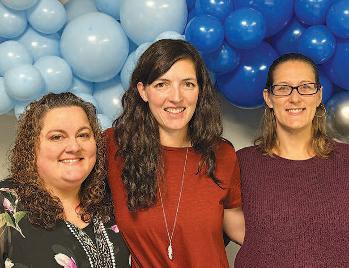

Our Patients Say it Best


















“Dr. Kendra and Dr. Kristin, along with office manager, Maricia, are caring, professional and very personable. They make time to be available to ensure that their patients are informed and well cared for.” – Mary Jo F.
“Kendra and her staff are great. Very professional, kind and competent. I’ve been working with them for 3 years now and couldn’t be happier. I highly recommend!!” – Katie W.
t L-R: Kristin Williford, Au.D.; Kendra Theodosopoulos, Au.D.; Maricia Cocanour, Patient
How seniors can overcome a lack of motivation to exercise
Exercise has its fair share of devotees and millions of others who recognize its value but still struggle to include workouts in their daily routines. Motivation can be a significant hurdle when it comes to exercise, and recent studies are a testament to that difficulty.
In a 2021 survey from the global fitness brand Orangetheory® Fitness and Kelton Global, 43 percent of respondents indicated they suffered from a lack of motivation to exercise. Lack of motivation can affect people of all ages, including seniors. However, seniors may be uniquely positioned to overcome their lack of motivation to exercise, particularly if they’re retired and have time on their hands. Seniors who aspire to exercise more frequently can consider these strategies if motivation becomes an issue.
• Exercise away from home. During the early days of the COVID-19 pandemic, a phenomenon that has been characterized as “basement burnout” developed. That referred to the lack of enthusiasm to exercise at home when gyms and other fitness facilities were forced to close as a public safety measure. Home workouts can become monotonous since most people do not have enough room at home to house the same array of equipment that’s available at their local gym. Seniors
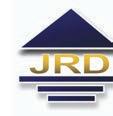

can overcome monotonous workouts by purchasing a gym membership at a local facility. Many clubs offer discounted rates to seniors and some even offer senior-specific fitness classes like yoga and Pilates.
• Employ the buddy system. Seniors also can enlist friends and family members to join them when they exercise. Encourage neighbors or friends to come along to the gym for a favored fitness class, or invite friends and family on hiking excursions or daily walks. The National Institute on Aging notes that turning exercise into a social activity is a great way for seniors to maintain their motivation to exercise.
• Track your progress and celebrate your successes. The NIA touts the benefits of tracking progress when trying to stay motivated to exercise. As exercise efforts pay



increasing dividends, seniors may find it’s no longer hard to stay motivated. Success can be measured in various ways. Some might aspire to produce healthier blood test results at the doctor’s office, while others may hope to lose a few pounds. However you define success, celebrate when you achieve your fitness goals. Rewards such as a spa day, a night out at the theater or a weekend getaway can provide all the motivation you need to stay the course.
• Be flexible with your routine. Mobility issues and other physical limitations may affect seniors. But such issues need not prevent aging men and women from exercising, even if it does mean they won’t be able to hit the gym four or five days per week. Mix up your routine so you can still exercise even if physical limitations make traditional workout routines more challenging. Go for nature walks on days when your body needs a break from strength-training, and check the forecast at the start of each week so you can rearrange your routine if Mother Nature makes outdoor exercise impossible on certain days.
Many people find it hard to stay motivated to exercise. Seniors can try a few strategies to ensure they stay the course with their fitness routines. FP242673


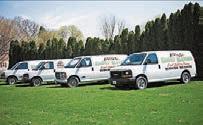










Greenfield Retirement Home
We are a nonprofit organization dedicated to providing older adults a family atmosphere where they receive loving, personalized care to maximize their quality of life and independence.
Greenfield is owned and operated by the Adeline E. Prouty Trust who has been providing services at 508 Park Ave. East in Princeton Illinois since 1911. Our licensed sheltered care living option lets you enjoy your independence and offers
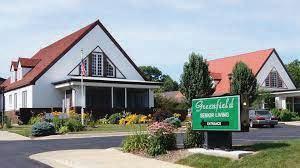
help when you need it. Our team of professionals helps with activities of daily living, managing medications, social and recreational activities, personalized care and home cooked meals. Enjoy our family
atmosphere while still having the comfort of your own private room.
The apartments at Greenfield offer an independent lifestyle without the responsibilities of maintenance and yard work. You have the choice of a variety of services and amenities to enrich your life. If you want to make the most of your retirement, Greenfield apartments have what you need. Spend your time doing the things you love and leave the rest to us.
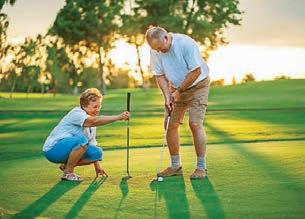
Injury recovery tips for seniors
There is no escaping the fact that the human body changes as it ages. Some changes associated with aging are beneficial, such as increased wisdom and knowledge from past experiences. Others, particularly changes to health and wellness, can be disconcerting.
Generally speaking, recovering from any injury can be a time-consuming process. For those over the age of 60, the process of recovering from injury can be especially lengthy.
According to Restorative Strength, a fitness and personal training service for seniors, elderly adults generally heal from injuries slower than young people.
Caring Senior Services says there are a few reasons why healing can be delayed:
• Having diabetes is one of the most common reasons why seniors have delayed healing. The disease can negatively impact wound healing because elevated glucose levels narrow the blood vessels and harden the arteries.
• The inflammatory response in seniors drastically slows down as people age. This response is the first phase when blood vessels expand to let white
blood cells and nutrients reach wounds. When delayed, the wounds heal much more slowly.
• Reduced skin elasticity and diminished collagen fibers in seniors can contribute to the body’s tissues not being able to return to a normal state after injury.
• Sedentary seniors may have lost muscle mass and flexibility, which help physically active individuals regain mobility after an injury. Bones also may be more brittle, particularly if osteoporosis is present.
Although it’s impossible to reverse the hands of time, there are steps seniors can take to recover from injuries more quickly, and potentially avoid them as well.
• Slow and steady physical activity: Exercise, including routine strength-training activities, helps strengthen muscles and bones. According to Pioneer Trace Healthcare & Rehabilitation, when complete bed rest is not advised after an injury, getting up and moving even just a little each day can jump-start recovery. Regular activity
prior to any injury also may make the body stronger and more flexible to help reduce the likelihood of injuries.
• Maintain a positive mindset. The mind has a role to play in injury recovery. Minimizing stress levels through meditation, and engaging in positive thinking techniques, can make healing and therapies more successful. Reducing stress can boost the immune system, which also will offer healing benefits.
• Improve diet. The body needs certain vitamins and minerals to function properly. Eating a well-rounded, healthy diet can provide fuel that facilitates healing.
• Work with a qualified professional. Seniors should not take on exercise or recovery efforts on their own. Exercising the right way and following prescribed guidelines can speed up recovery and potentially prevent future injuries. Recovery from injury could take longer for seniors. But with exercise, positive thinking and guidance from health professionals, there are ways to speed up the injury recovery process. HW241591
















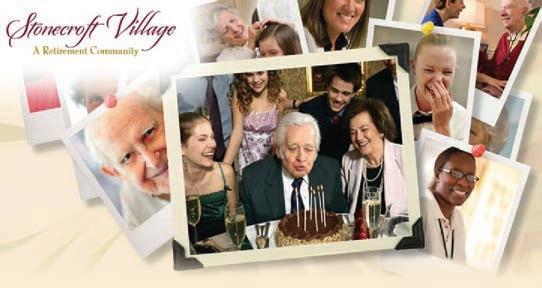

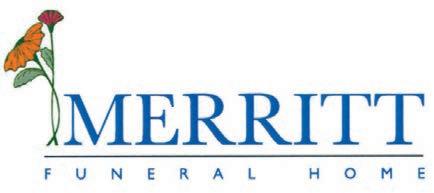







• Daily Meal ($8 Suggested Donation for those 60+)
•
•
• Lending Closet (Free Use of
(Medicare Help)






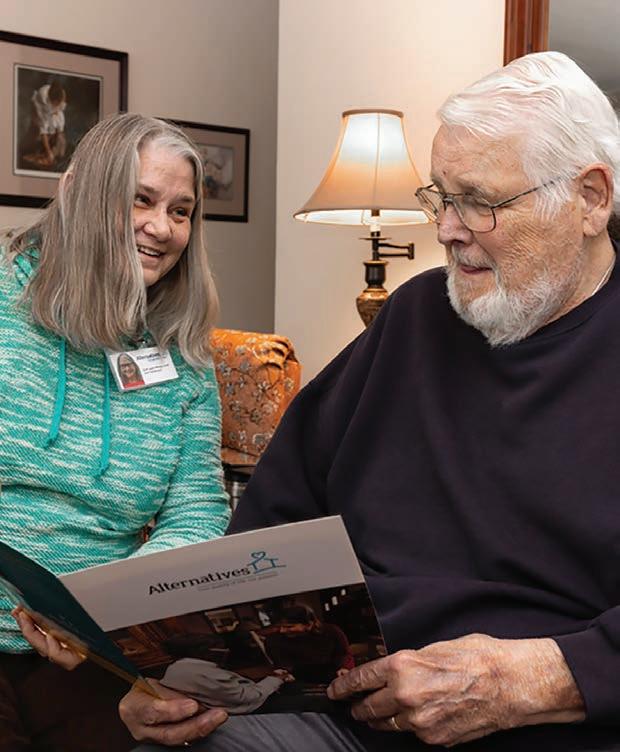
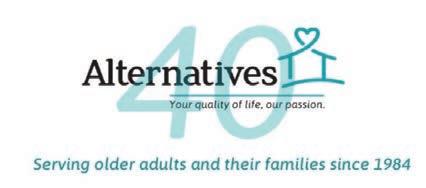
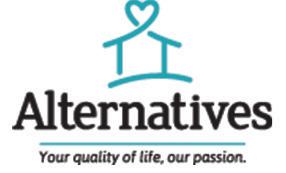
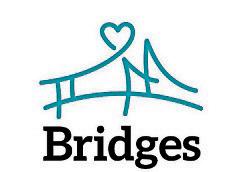
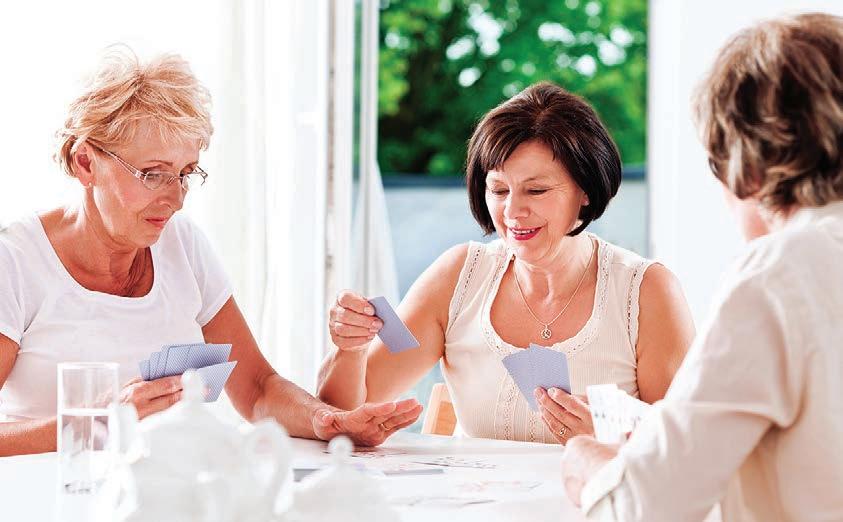
Notable senior health concerns
The human body changes as it ages. While certain conditions are commonly associated with aging, some individuals may be surprised to learn of the more common health conditions that can affect seniors. The World Health Organization says one in six people will be 60 or older by 2030. With such a large portion of the population on the cusp of turning 60, it makes sense for individuals to familiarize themselves with the more notable issues affecting seniors.
COGNITIVE DECLINE
A certain degree of memory loss is a natural component of aging. Forgetting where you left your keys or experiencing difficulty putting a name to a face can be a random and frustrating occurrence. However, dementias, like Alzheimer’s disease, are not a side effect of aging. As many as one in five seniors experiences mental health issues that are not associated with aging, and it helps to learn the early warning signs of dementia. Such recognition may compel individuals to seek treatment that can slow the progression of the disease.
OSTEOARTHRITIS
Aches and pains may come with aging, and often can be attributed to osteoarthritis, which is the most common form of arthritis, according to the Mayo Clinic. Osteoarthritis occurs when the protective cartilage that cushions the ends of bones wears away over time. It is progressive and cannot be reversed, but maintaining a healthy weight and staying active can help alleviate pain and improve joint function.
CATARACTS AND REFRACTIVE ERRORS
It should come as no surprise to most that the eyes change as the body ages. Refractive errors like nearsightedness, farsightedness,
astigmatism, and presbyopia can make objects look blurry when viewed, says the National Eye Institute. Cataracts, which are a clouding of the eye’s natural lenses, affect about 20 percent of people age 65 and older, according to the American Geriatrics Society, while the National Eye Institute says half of all people over age 80 will get them. Cataract removal surgery and prescription eyeglasses can help.
TYPE 2 DIABETES
American Senior Communities reports that it’s estimated 25 percent of adults age 65 and older have type 2 diabetes. Unchecked diabetes can lead to a host of ailments, including vision problems, mobility issues, kidney damage, and increased risk for heart disease or stroke. Many people can manage type 2 diabetes with diet and exercise.
HEART DISEASE
The National Institute on Aging says adults age 65 and older are more likely than younger people to suffer from cardiovascular disease that affects the heart, blood vessels or both. Conditions like high blood pressure and high cholesterol need to be properly managed, and diet and exercise is important throughout life to avoid developing heart disease in later years.
BALANCE ISSUES
Balance issues that can lead to falls are a major concern for seniors. According to HealthinAging.org, many things can adversely affect balance. These include nerve and brain problems, vision troubles, diabetes, arthritis, inner ear problems, and even dehydration. Dizziness or balance problems should be addressed, as there are serious health risks associated with falls. FP242666



